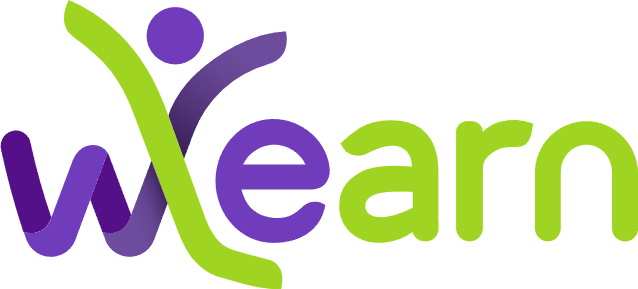PBL Primary: Solar Decathlon Design Challenge
Class
Course Description/Outline
This course aims to teach learners multiple basic engineering skills and how to apply their newly learned skills to almost any aspect of PBL/Innovation. The lesson structure below involves several engineering type skills that can help learners of all ages/sections understand, analyze and apply their newly learned skills.
In this course we will look into multiple different Solar powered vehicles and “power banks”. We as the new generation will learn more about the importance of engineering and the need for more Solar powered vehicles and clean energy.
Lesson description:
Designing and building a solar powered vehicle. Understanding the structures needed for the build and functionality of solar powered vehicles.
Learning Goals
Key standards
WLA Mastery Credits
Curiosity & Creative Thinking
6.1.1 Artistic Creation: Learner can generate/produce artistic works using appropriate techniques and materials
6.1.2 Creativity from Synthesis: Learner can integrate multiple data and/or opinions to create new meaning.
WLA Mastery Credits -
Effective Written & Oral Communication
5.1.1 Composition: Learners can follow an ongoing writing process that includes planning, drafting, revising, editing, and publishing using ideas, organization, voice, sentence fluency, grammar, and word choice.
5.1.2: Discussions: Learners can initiate and participate in rich collaborative discussions.
5.1.4: Public Speaking: Learners can speak before an authentic audience in an engaging and convincing way.
WLA Mastery Credits - Critical Thinking & Problem-Solving Skills
2.1.1 Problem Identification: The learner can identify, analyze, and frame the problem challenge in a simple and realistic way.
2.1.2 Research Skills: Learners can conduct short research, gather pertinent information from a range of reliable sources, and interpret data in a meaningful way.
2.1.3 Problem Solving: Learners can analyze situations, identify patterns, gather relevant facts, and create plans of action to implement solutions.
2.1.4 Ideation: Learners can develop, transcribe, and communicate ideas to others in both academic and social settings as well as in interpersonal relationships.
2.2.2 Design Solution: The learner can understand the challenge and design a viable action plan that offers a sustainable solution.
Week 1 (DAY 1 and DAY 2)
This Lesson aims to provide all the skills and knowledge to:
Designing skills:
- Learn Basic drafting/scaling skills.
- Apply new drafting/scaling skills in a 3d model maker program.
- 3D Design body for solar vehicle using Tinkercad.
- Designing multiple chassis for different functions using Tinkercad.
- Design an easily replaceable body using Tinkercad.
- Design durable solar panel structures using Tinkercad
Week 2 (DAY 3 and DAY 4)
This Lesson aims to provide all the skills and knowledge to:
Electrical engineering skills:
- Learn basic electrical engineering components and skills.
- Learn basics about solar cells and how they function.
- Create an electrical schematic for solar panels.
- Create electrical circuit and solder needed components.
- Measure and solder electrical wires needed.
- Test circuit.
Week 3 (DAY 5)
This Lesson aims to provide all the skills and knowledge to:
Chemical Engineering skills
- Learn about the functions and inner workings of a solar cell.
- Apply knowledge and create functional solar cells.
Week 4 (DAY 6 and DAY 7)
This Lesson aims to provide all the skills and knowledge to:
Mechanical Engineering skills:
- Learn Basic mechanical engineering.
- Apply basic mechanical engineering learned.
- Collect and test available motors and components for the “car” part of the solar powered vehicle.
- Lay out and plan, best operating path for “Solar powered vehicle”.
- Use available parts and tools to assemble vehicle/structure.
- Print out chassis/frames using available 3d-printer.
- Test durability of chassis.
- Calculate all possible durability issue outcomes.
- Assemble vehicle and test.
Key Vocabulary This is a suggested list to get you started. The following are the key vocabulary words and terms you need to learn!
- Designer
- Function
- Organism
- Scientific Observation
- Sustainability Literacy Skills
- Expository writing
- Reading informational text
- Presenting ideas with evidence
- Presenting ideas with digital media and visual displays enhance understanding
Success Skills
- Critical thinking
- Collaboration
- Creativity
Here is the class outline:
1. DAY 1 Introduction to renewable energy |
2. DAY 2 Discussion and vocabularyIn this lesson we will have an idea sharing discussion and look at different designs and create our first drafts for our prototype. We have to create at least 3 drafts per group and decide on the most efficient draft. |
3. DAY 3 Building our modelDuring this period be will build our water heater model and share builds with the other groups. |
4. DAY 4 Continue our build and make changes if needed.During this period we will continue improving our build and have open discussions and sharing information. |
5. DAY 5 Thermal Energy StorageHere we will learn about the functionality of solar cells and how the store solar power. |
6. DAY 6 Vocabulary used during lesson.Here we will have another group discussion and work together to understand some concepts and vocabulary used during the Solar decathlon. |
7. DAY 7 Complete our models and other assignments.This day we will prep for the showcase and complete work that we have not completed yet. |




